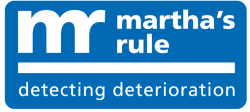What we do
We specialise in the care of children from birth to 16 years, with a variety of heart or lung illnesses. We look after children who require intensive care following emergency and planned heart and lung surgery.
When you reach the unit
Please ring the bell and wait to be admitted. Please be patient, we will answer as quickly as possible. If you have not visited before the nurse or ward administrator will come and meet you to take you to your child.
Infection prevention is very important on our ward, so once admitted, please use the alcohol gel provided just on the left inside the door or wash your hands at the sink a few steps further down the corridor on the right.
Visiting times
You can be with your child whenever you want to, except during the morning doctors' ward round, between 7am and 8am.
Sometimes we may need to perform clinical procedures in patient areas. We may ask visitors to leave for a short time when this happens.
We ask that you limit the number of visitors at the bedside to a maximum of 2, and you are present if other family members or friends come to visit. Your child's siblings are welcome. They should visit one at a time and be supervised by a responsible adult.
After 8pm, parents should be the only visitors. There may be exceptions in special circumstances.
The children we care for
We are equipped to care for children with problems with their heart and lungs from their first day of life until they are 16 years old.
You can be assured of the highest standard of care, managed by internationally recognised experts in their field equipped with the most modern means of achieving as speedy a recovery as possible.
We care for many newborn babies with suspected heart disease, who are referred to us from maternity units in other hospitals. We also look after children with breathing conditions, including bronchiolitis, tracheomalacia, Duchenne’s muscular dystrophy and other neuromuscular disorders.
Life on the unit
We have four bays with four beds each and four single cubicles. Although bays are mixed, there are curtains around each bed for privacy during procedures.
There is a small sitting room on the unit and a kitchen where parents can make drinks and heat simple foods.
Accommodation
You are welcome to visit your child in PICU whenever you like. However, you will not be able to sleep in your child’s bedspace. We do not let any parents or carers sleep in children’s bedspaces. This is because we need space around beds to give children any care they may need.
A limited amount of parent accommodation is available in our parents’ units. This accommodation is offered free of charge. Accommodation rooms are situated on Level 6 in the main hospital building, and in South Parade, a five-minute walk away.
Accommodation is organised through the family liaison service team, the ward clerk, or the nurse in charge.
Who you will meet on the unit
The nursing staff all wear blue scrubs, like pyjamas, but will wear identification badges. There will be a nurse in charge of the unit on each shift and he or she will be responsible for co-ordinating the care of the children on PICU on a day to day basis.
The PICU medical staff wear normal clothes (no white coats) and consist of a consultant, clinical fellows and senior house officers (SHOs). Other medical staff you may meet include surgeons, anaesthetists, cardiologists and respiratory specialists.
You will also meet other members of the multidisciplinary team including physiotherapists, dieticians, occupational therapists, X-ray staff and pharmacists.
During the day there is a ward administrator who will be able to answer any general queries that you may have.
Find out more about who's who on our wards.
More information
Paediatric critical care at Royal Brompton Hospital - information for parents and carers leaflet (PDF 336KB)
Martha's Rule - call if concerned
You know yourself or your loved one better than anyone. If you’re worried about a health condition getting worse, talk to us. We have introduced Martha’s Rule to help spot any unexpected signs and give you the right to request a rapid review if you’re worried that your or your loved one’s condition is getting worse.

